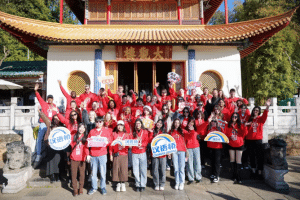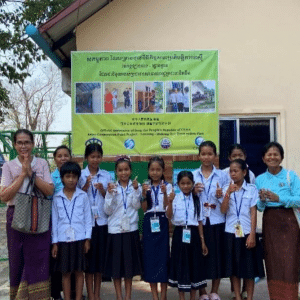The Mainstreaming Decarbonization Actions into Chinese NGOs (MDACN) project held a workshop in Beijing from August 14 to 15, 2024. This initiative aims to deepen the understanding of climate change among local Chinese NGOs, enhance their capacity to engage in low-carbon actions, and integrate low-carbon concepts into their strategic plans, ultimately supporting China’s dual carbon goals.
The project is funded by the Climate Works Foundation (CWF), with the Beijing Service Center for Overseas Non-governmental Organizations (BSCONGO) serving as the Chinese partner, alongside the Beijing E-share Civil Society Information Centre.
More than 30 NGOs participated in the workshop, held at the Beijing Ritan Hotel. Zhang Xiaohua, Senior Director of the China Program at CWF, delivered a keynote speech on behalf of the funding organization. He emphasized that climate change represents one of the most significant challenges facing the world today and highlighted the crucial role that Chinese NGOs can play in promoting carbon neutrality.
To guide their efforts, Zhang proposed four key suggestions:
- Community Education: NGOs should implement educational activities to raise public awareness about climate change and low-carbon lifestyles. This initiative aims to dispel common misconceptions about climate policies and solutions while encouraging sustainable behaviors.
- Interlinking Issues: NGOs should address climate change in conjunction with other pressing issues such as rural revitalization, environmental protection, biodiversity, technological innovation, and community development, thus generating broader social and economic benefits.
- Grassroots Implementation: NGOs can capitalize on their grassroots connections to engage various stakeholders, fostering collaboration and ensuring effective implementation of climate actions.
- International Cooperation: Increased participation in international exchanges and cooperation will enable NGOs to share their experiences while learning from global best practices.
Zhang expressed CWF’s commitment to facilitating more international cooperation opportunities for Chinese NGOs.
Liu Yang, Vice President and Director of BSCONGO, echoed the need for local NGOs to play a more prominent role in achieving China’s dual carbon goals. He explained that BSCONGO’s mission is to provide assistance and services to international NGOs seeking to implement projects in China, welcoming collaborations with grassroots organizations.
Zhang Gengrui, Chairman of CDB, provided context on climate projects, emphasizing that addressing climate change requires the engagement of a diverse range of NGOs beyond environmental sectors.
Wang Qian, Programme Management Officer at the United Nations Environment Programme (UNEP) China, delivered a keynote address that outlined the history of climate change and global climate action. She discussed the impacts of climate change, the evolution of climate initiatives, and the vital role of communities in fostering climate action.
Chen Yingjie, Manager of the Climate and Energy Project at Greenovation Hub, shared insights on how NGOs can engage in climate governance and highlighted the interplay between climate science, policy, and action strategies.
To enhance participants’ understanding of climate issues, the Climate Fresk team was invited to the second session of the workshop to introduce a board game designed to raise awareness about climate change. Created in 2015 by Cédric Ringenbach, the game involved three phases:
- Understanding Cause and Effect: Participants connected cards depicting climate-related causes and consequences, based on insights from IPCC reports.
- Creative Engagement: Participants decorated the Fresk and selected a title for their collaborative work.
- Debriefing Session: Participants discussed their thoughts, positions, questions, and both individual and collective solutions.
On the second day of the workshop, a case-sharing session featured Li Zhen from the Beijing Social Work Development Center for Facilitators, Zhong Lijin from the Beijing Huanding Environmental Big Data Institute, Wang Jinxuan from Coshare Environment, Zhao Liang from Air Man, and Wei Xianfeng from Evergreen, who shared how their organizations incorporate climate action into their respective fields.
Following these presentations, Zhang Ruiying from the China Environmental Grantmakers Alliance (CEGA) moderated a roundtable discussion focusing on the strengths and challenges NGOs face in implementing climate actions. The dialogue revolved around resource mobilization, positioning within the sector, and effective communication with donors and stakeholders.
The workshop concluded with an open discussion led by CDB, which announced a series of support activities designed to encourage NGOs’ participation in low-carbon actions.



